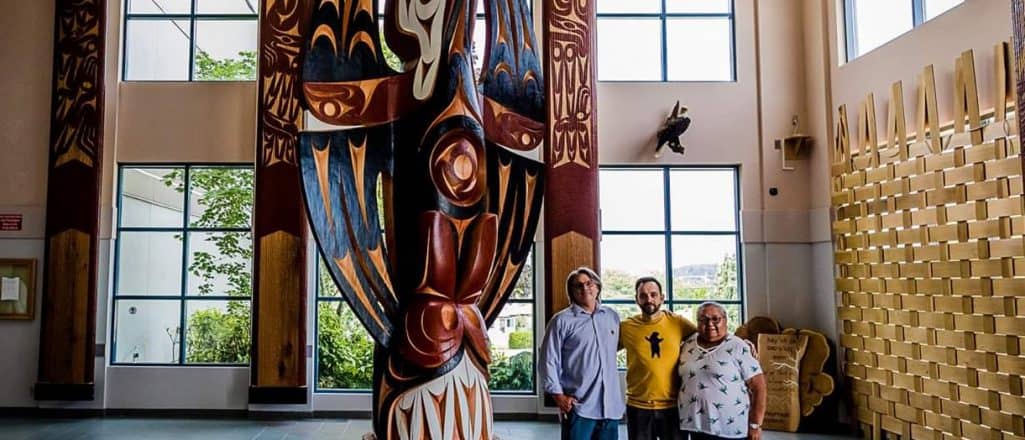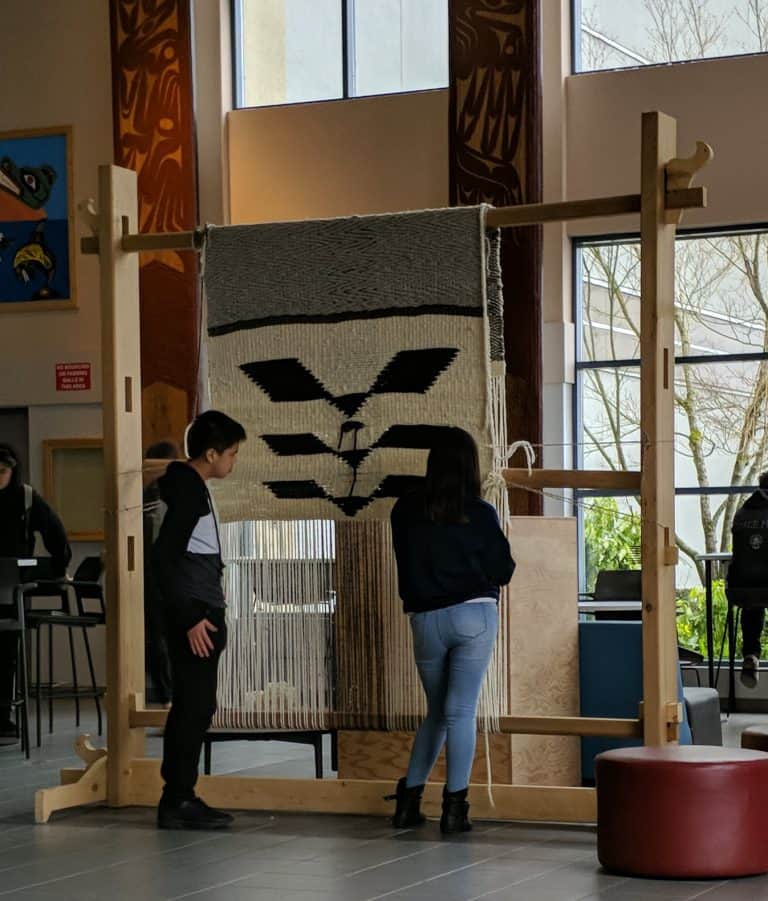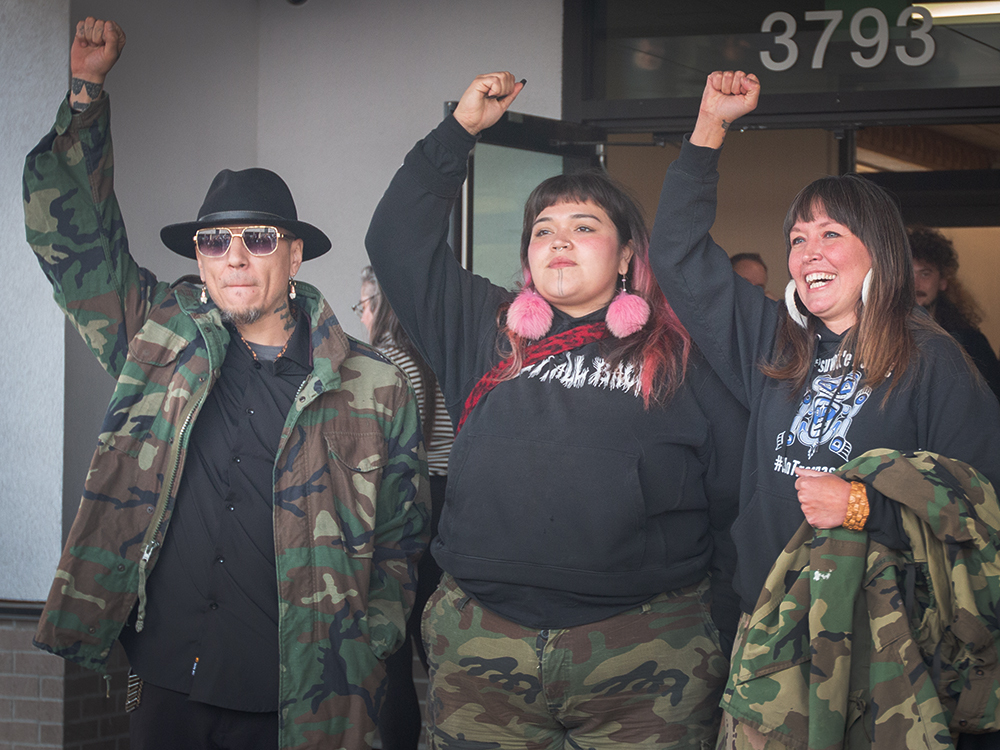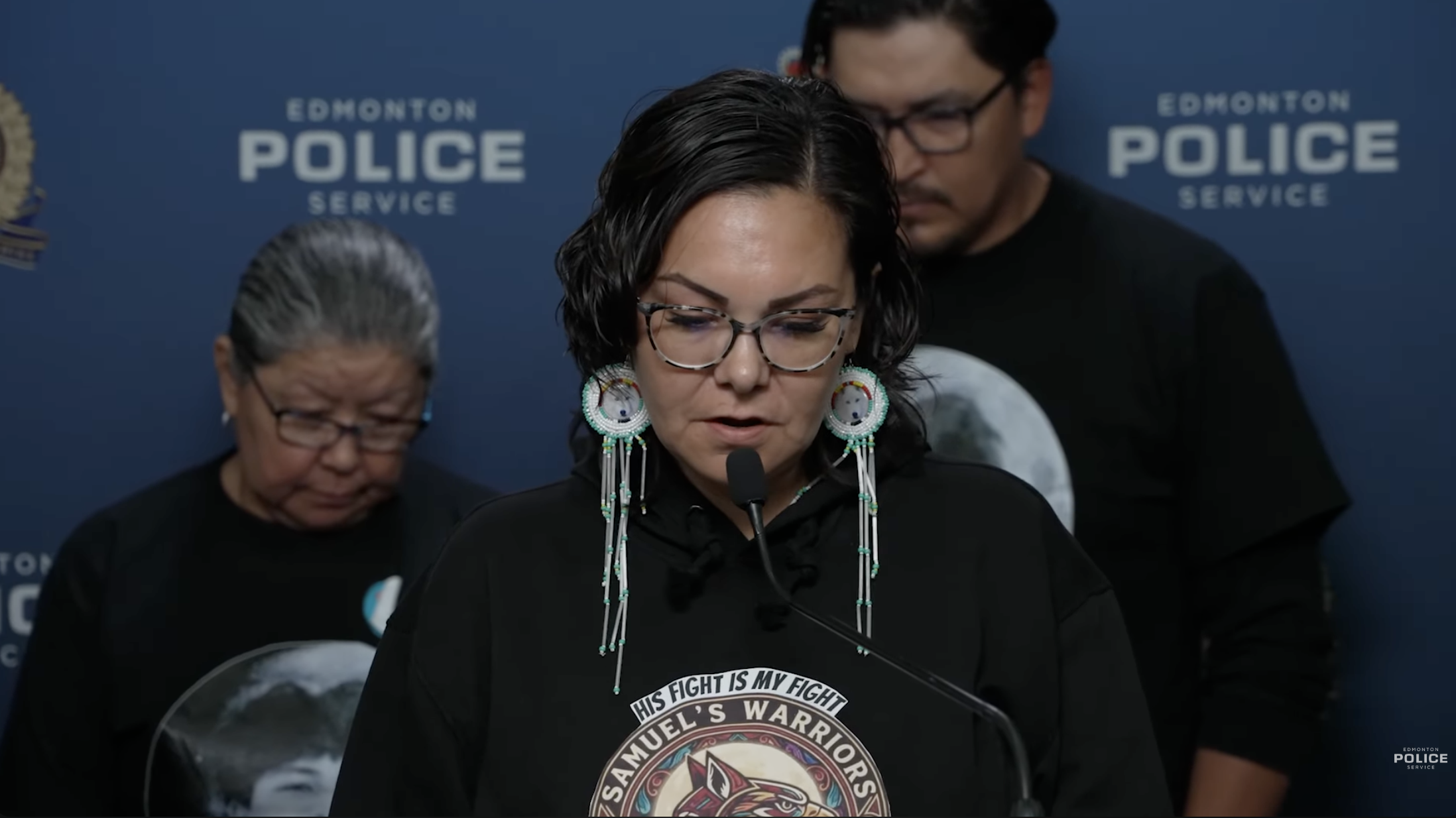Innovative high school program brings land-based Coast Salish teachings into classroom
The Land and Language Based Learning Program — led by yutustanaat of Snuneymuxw First Nation — incorporates local Indigenous ways of knowing to Ladysmith Secondary School.

On a typical day at Ladysmith Secondary School, on Vancouver Island, local high school students might be harvesting medicines, weaving or learning Indigenous songs.
Led by Snuneymuxw teacher yutustanaat (Mandy Jones), the innovative Land and Language Based Learning Program is entering its fifth year this spring.
The program delivers traditional Coast Salish ways of knowing through School District 68’s curriculum.
“It’s a beautiful way of reaching our kids,” says yutustanaat.
“Because we’re bringing back our old traditional ways, we’re using our language, we’re using our culture.”
The program was co-developed with longtime teacher William Taylor, who has been working with Ladysmith Secondary School since 1996, and helped yutustanaat to meet curriculum requirements.
Taylor says he wrote up the program in a way that creates a safe space to deliver the traditional teachings, even though the way of learning itself doesn’t quite align with the concept of a school curriculum.
“It’s a different way of seeing the world, a different epistemology,” he says.
Taylor explains that the program uses five criteria to judge student success: being present and prepared, listening, being able to “tell the story back,” and being able to identify their own gifts and adding them to the work.
“That’s the basis of how we operate in our class,” he says.

Yutustanaat adds that the program allows students to shine because it operates so differently than a regular classroom, while making connections to everything from math to physical education.
Depending on the time of year, students might learn to process fibres for weaving, have a Hul’q’umi’num’ language lesson, or learn teachings about cedar.
“They’re doing everything hands on,” yutustanaat says.
“We go out for walks and look at Mother Nature. They see our community in different ways because they’re now looking at the purpose of everything in our forest, the purpose of everything in our beach.”
At first, Taylor says, the program largely consisted of Indigenous students who signed up, but the program is now a mix of students from all backgrounds, which was always the goal.
The program typically operates half-days for half of the school year, but this year because of COVID-19 it will only run for a quarter of the school year starting in April.
Yutustanaat says she hopes to one day expand the Land and Language Based Learning Program so that it can operate full time and be brought to other schools.
“Our goal and our dream is to be running all year round,” she says.
“So we can take advantage of all the different activities that go with seasons.”
This story was written by Catherine Lafferty, you can see more of her work here.
Author
Latest Stories
-
‘Bring her home’: How Buffalo Woman was identified as Ashlee Shingoose
The Anishininew mother as been missing since 2022 — now, her family is one step closer to bringing her home as the Province of Manitoba vows to search for her
-
Land defenders who opposed CGL pipeline avoid jail time as judge acknowledges ‘legacy of colonization’
B.C. Supreme Court sentencing closes a chapter in years-long conflict in Wet’suwet’en territories that led to arrests
-
Samuel Bird’s remains found outside ‘Edmonton,’ man charged with murder
Officers say Bryan Farrell, 38, has been charged with second-degree murder and interfering with a body in relation to the teen’s death













